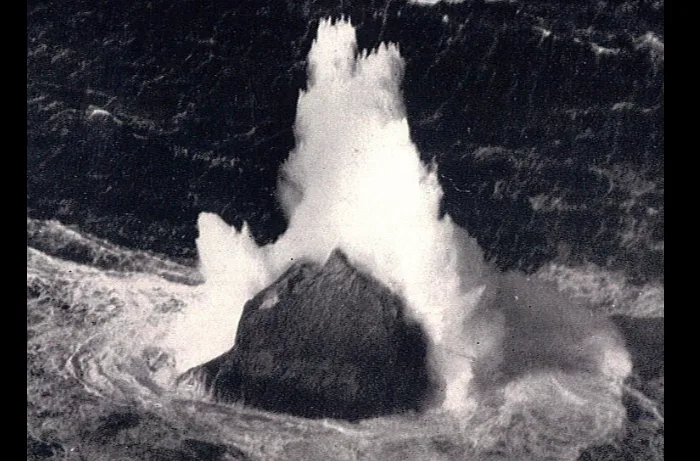
B.C. professor working improve safety and demystify 'rogue waves'
'Rogue waves' -- a phenomenon that occurs when multiple waves combine forces -- can be fatal.
Rogue waves, characterized as unusually large, unexpected waves, can cause injury and significant damage to ocean vessels. They're roughly double the size of standard waves and can appear seemingly out of nowhere, disappearing just as fast. The phenomenon is a relatively common occurrence: in 2015, Professor Nail Akhmediev estimated there are roughly 10 rogue waves happening in the world's oceans at any given time.
One of their more dangerous aspects is their unpredictability, but a scientist at the University of Victoria is working to demystify them.
"That's why we started this project," Professor Johannes Gemmrich says in an interview with Global News.
"[We're] trying to educate the public and give [them] a better warning."
The project he's referencing is a three-year endeavour. Gemmrich partnered with grad students and set up cameras in the Long Beach Unit of the Pacific Rim National Park Reserve in 2019, alongside others at Cox Bay and Chesterman Beach in Tofino in late 2020. Two buoys are also floating out in the ocean off the coast of Vancouver Island, all in a bid to collect data on rogue wave formation and dissipation. The team is about half-way through their study, Global News says.

A 1943 photograph of a large wave breaking over the islet of Rockall, in the North Atlantic Ocean. Rockall's peak is about 17 m above sea-level, and the height of the spray has been estimated at about 52 m. Photo caption and source: Wikipedia.
A DANGEROUS SPOT
In September, two people and a dog were swept off the rocks in Vancouver Island, into the same waters where Gemmrich's team has placed its sensors.
Ucluelet resident Kyla Macgregor told the CBC she had been visiting the cliffs near the Wild Pacific Trail, the site where the incident occurred, "almost every day" for two years.
One day while on a hike with her friend and her dog, a giant wave scaled the cliff, picked up the trio, and threw Macgregor into a rock, causing her to lose consciousness.
"I thought I was dead," she told the CBC. She awoke in a tide pool and found her friend face-down and unconscious in the water.
All three survived the terrifying ordeal.
IMPROVING SAFETY IN CANADA'S PARKS
Gemmrich's data is being shared with Parks Canada to help the organization improve visitor safety, the government agency said in a statement obtained by the CBC.
In the meantime, Gemmrich says it's important for beach-goers to remember waves can fluctuate in size and intensity with little-to-no warning.











